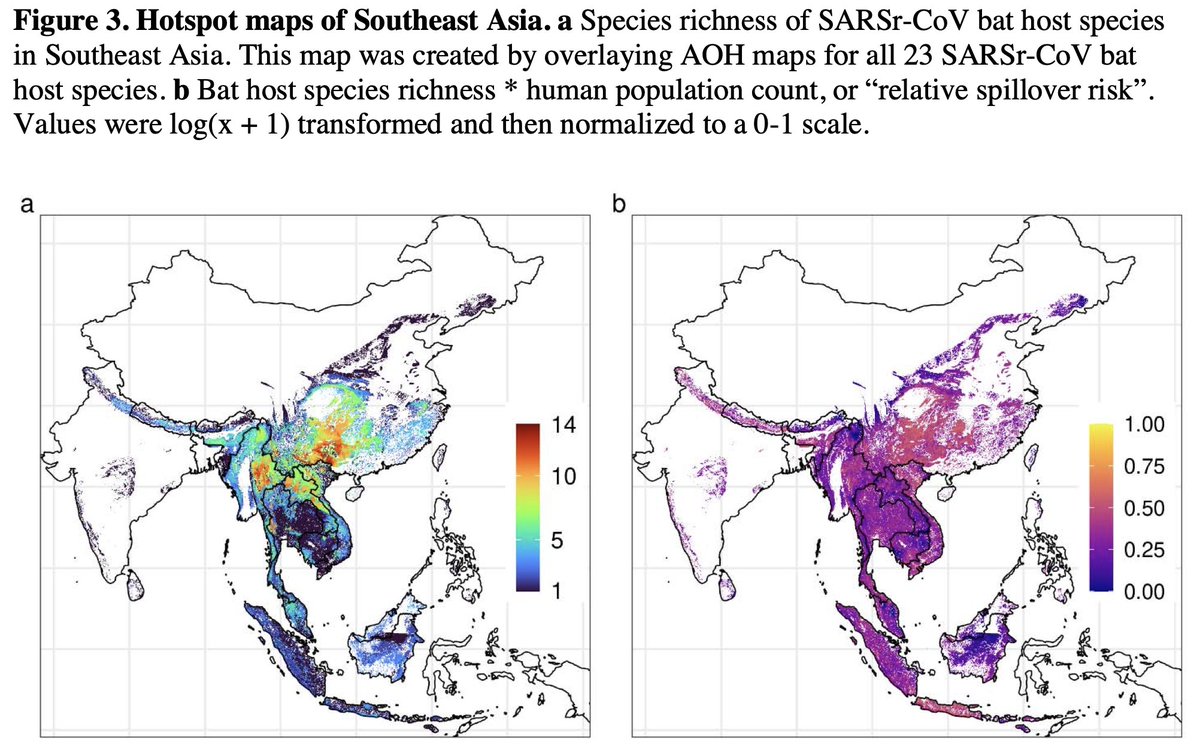
Last week I sat down with @billgates to talk about global vaccine inequity, why COVAX has failed to curb it, his foundation more generally and Germany’s role in global health. Interview (€, in German) here and a few points in English to come:
zeit.de/gesundheit/202…
zeit.de/gesundheit/202…
On Covax:
He told me one huge problem was the complete absence of US leadership on this.
Another one was basically bad luck: COVAX bet on vaccines that were cheaper and more easily distributed than the mRNA vaccines and many of these have hit snags
He told me one huge problem was the complete absence of US leadership on this.
Another one was basically bad luck: COVAX bet on vaccines that were cheaper and more easily distributed than the mRNA vaccines and many of these have hit snags
(It is worth remembering that the bulk of globally available doses so far have been of just four vaccines: Astra-Zeneca, Pfizer and Sinopharm and Sinovac. Of these, Covax only bet early on AZ. Others it was counting on like J&J or Novavax have hit snags along the way.)
COVAX then had another problem, when India stopped exports of the AZ vaccine being produced there.
Though there had been an agreement to export half of the vaccine, given the escalating crisis at home, India changed its mind and there was little COVAX could do, Gates told me.
Though there had been an agreement to export half of the vaccine, given the escalating crisis at home, India changed its mind and there was little COVAX could do, Gates told me.
I asked him about countries like Germany pledging money to COVAX but then buying up vaccines before COVAX had any money in the bank to buy itself. And @DrTedros recent piece arguing companies should prioritise COVAX now, which you can read here:
journals.plos.org/globalpubliche…
journals.plos.org/globalpubliche…
@DrTedros His response was that the situation is changing. India was now producing more vaccine than is needed domestically and would restart exports, he told me:
“We're finally getting to the point where supply of vaccine over the next three or four months will not be the limiting factor"
“We're finally getting to the point where supply of vaccine over the next three or four months will not be the limiting factor"
@DrTedros I asked about the TRIPS waiver of course and put it to him that we might be in a different situation now if that had been done a year ago.
His response: “That is the stupidest thing I ever heard” (editors decided to make that the headline by the way 🤷♂️)
His response: “That is the stupidest thing I ever heard” (editors decided to make that the headline by the way 🤷♂️)
@DrTedros “We are going to be swimming in COVID vaccines in mid-22”, Gates told me. "But if you want to discourage pharma innovation, I think it's brilliant. You should always threaten them that they won't have any IP.”
I told him companies had made billions.
He said a waiver did nothing.
I told him companies had made billions.
He said a waiver did nothing.
@DrTedros (He argues that waiving IP rights does not change anything, something that imho may be true in the short term but not in the long term. Instead, he argues for second-source deals and if you want to know more he makes that case here, for instance: edition.cnn.com/2021/10/13/opi…)
@DrTedros I also asked about structural issues. Why not put more money into general health system strengthening for instance?
His response: Global ODA budget is $140 billion a year and that is not enough. @gavi and @GlobalFund are the two things he is proudest of, he says.
His response: Global ODA budget is $140 billion a year and that is not enough. @gavi and @GlobalFund are the two things he is proudest of, he says.
@DrTedros @gavi @GlobalFund Isn’t the problem that philanthropists are not accountable to anyone?
People should not rely on philanthropy for things like a decent healthcare system or education system, he told me. Increasing taxes locally is the way to go.
People should not rely on philanthropy for things like a decent healthcare system or education system, he told me. Increasing taxes locally is the way to go.
@DrTedros @gavi @GlobalFund Philanthropy is fairly small, he told me, and so it has to concentrate on high impact things like trying to eradicate diseases
“I hope during the lifetime of the Gates Foundation, which is between now and something like 2050, we can eradicate measles, we can eradicate malaria…"
“I hope during the lifetime of the Gates Foundation, which is between now and something like 2050, we can eradicate measles, we can eradicate malaria…"
@DrTedros @gavi @GlobalFund Finally, on Germany:
He said the country’ had taken on a much bigger role and it was night-and-day compared to a few years ago.
“It looks like people are proud of that. And I wish even more Germans knew about it and got to go to Africa and see the benefits of what's been done."
He said the country’ had taken on a much bigger role and it was night-and-day compared to a few years ago.
“It looks like people are proud of that. And I wish even more Germans knew about it and got to go to Africa and see the benefits of what's been done."
@DrTedros @gavi @GlobalFund When the UK recently reduced it’s ODA budget from 0.7% to 0.5% of the economy there was not any real public outcry, he said, and it would be hard to get the UK back to 0.7%.
That Germany is now (finally) at 0.7% gives it added weight going into the G7 presidency, he argues.
That Germany is now (finally) at 0.7% gives it added weight going into the G7 presidency, he argues.
• • •
Missing some Tweet in this thread? You can try to
force a refresh





